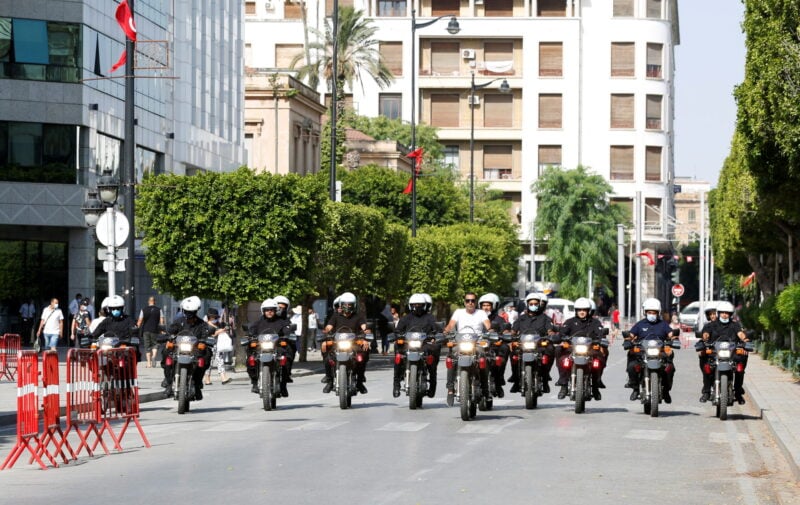
Police officers patrol a street in Tunis, Tunisia, July 28, 2021. REUTERS/Zoubeir Souissi
Tunisian authorities are accused by the Tunisia’s Renaissance Party, Ennahda, of “striving to put a political and security hand on the public media.”
“The suppression of rights and freedoms was manifested in the deprivation of political parties from appearing in public media and the blow against syndicates’ right to stage strikes, protest, and negotiate in order to improve the deteriorating conditions of this sector,” Ennahda said in a statement released on Thursday.
On 25 July, President Kais Saied deposed the government, suspended parliament, and assumed executive authority.
He insisted that the “exceptional measures” were intended to “save” the country, but critics accuse him of planning a “coup.”
Ennahda, which was founded in 1981 and is the largest party in the now-suspended Tunisian parliament, called the accusations “politicised” and demanded that the suspension be lifted immediately.
The head of the Journalists Syndicate, Mahdi al-Jelassi, said in a media statement Tuesday that “there is a political decision to prevent all parties from entering public television and participating in its programs, which represents a major setback for press freedom in the country.”
However, Awatef al-Saqrouni, the director-general of Public Television, said in a press statement the same day that “there is no decision or instruction from any party to prevent hosting political parties.”
Ennahda also warned in its statement of the “danger of continuing the rhetoric of incitement against the judiciary and judges.”
It urged “all parties to stand firmly against any attempt to target constitutional gains in ensuring the independence of the judiciary, especially the Supreme Judicial Council.”